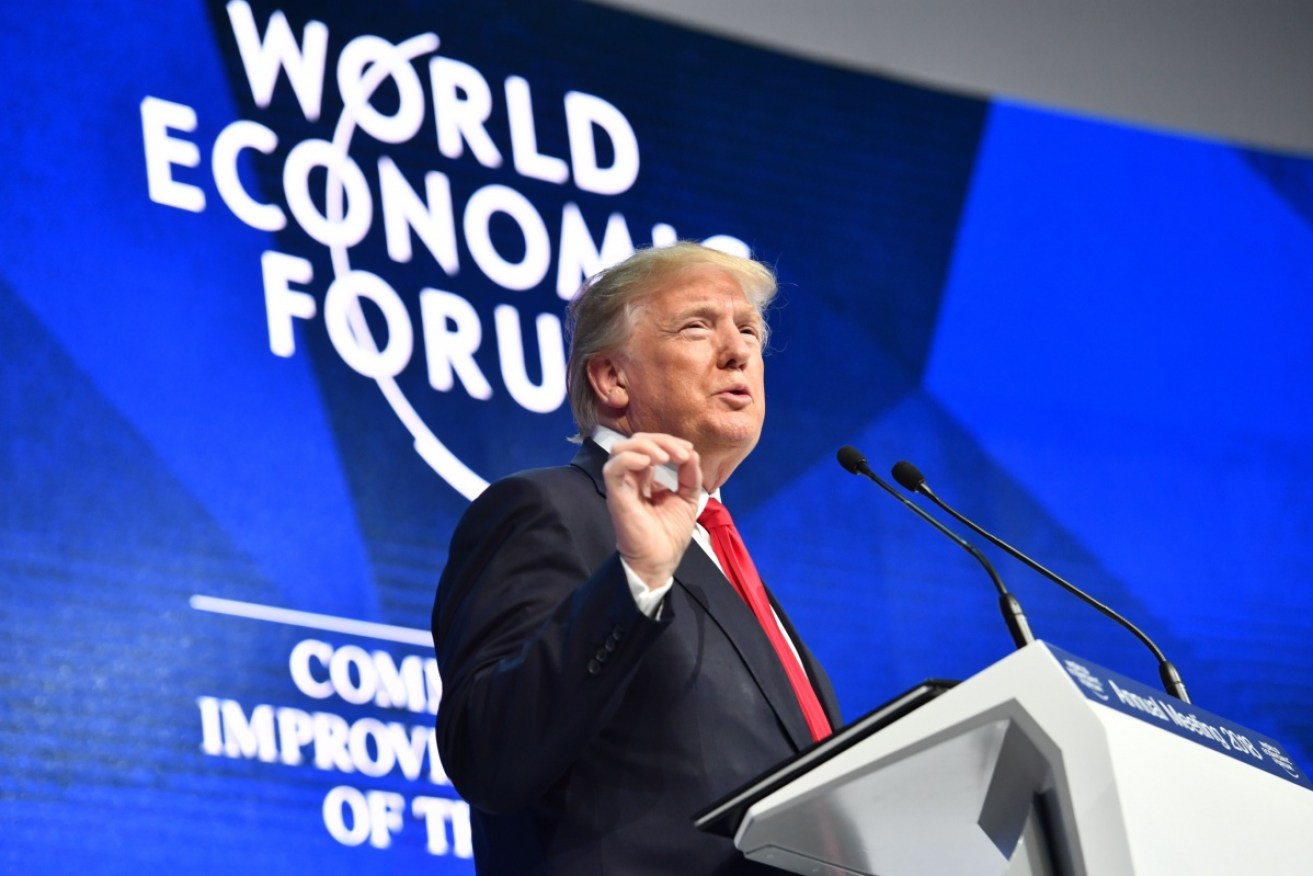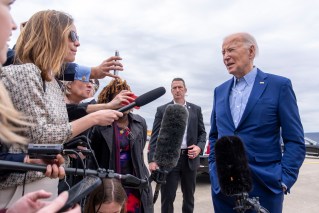Trump arrived in Davos as a party wrecker. He left praised as a pragmatist

Many attendees at the World Economic Forum were stunned by Donald Trump's restraint. Photo: Getty
No one was declaring President Trump a changed man. Privately, executives and global leaders who had gathered in Davos continued to worry that the American president could yet indulge his worst instincts — and his penchant for shock on Twitter — to deliver a geopolitical crisis, open up a new front in trade hostilities or offend a vast group of people.
But a rough consensus emerged over Mr Trump’s two-day visit that his administration had shown itself to be more pragmatic than advertised. Many were inclined to view the president’s most extreme positions as just aggressive bargaining postures.
“There’s a very constructive mindset in the Trump administration to find the best path forward,” said Vas Narasimhan, global chief of drug development for Novartis, who attended a dinner Mr Trump hosted on Thursday night with leaders of more than a dozen European companies.
“I’m optimistic that, with other world leaders, most of these issues can be tackled in a productive way for the global economy and for global businesses.”
During the dinner, Mr Trump made the rounds, stopping to ask executives how they plan to increase investment in the United States, according to attendees.

Donald Trump listens to SAP (a multinational software company) CEO Bill McDermott during a working dinner with European business leaders. Photo: Getty
In his speech, Mr Trump took credit for a booming American stock market and strong economic growth, pointing to the regulations his administration has slashed, as well as the $US1.5 trillion package of tax cuts he championed and navigated through Congress. He left the impression that he was above all eager to woo foreign investment, as if he were leading some amped-up American Chamber of Commerce.
“Over the past year, we have made extraordinary strides in the United States,” Mr Trump said. “After years of stagnation, the United States is once again experiencing strong economic growth.”
Economists note that the American economy is into its ninth year of expansion, a trend that speaks to how the aftermath from the 2008 financial crisis has finally run its course. A surge of cash delivered by the Federal Reserve has stimulated commercial activity.
The International Monetary Fund this week lifted its forecasts for American growth, in large part because of Mr Trump’s tax cuts. Economists note that the benefits fall overwhelmingly on corporations and wealthy American households, exacerbating economic inequality.
But Mr Trump framed the tax cuts as a broad source of what will be better days for all Americans. And he gained the unbridled endorsement from the man who heads the World Economic Forum, Klaus Schwab, whose eagerness to flatter his interlocutors is legendary.
“On behalf of the business leaders here in this room let me particularly congratulate you for the historic tax reform,” Mr Schwab said, adding that the tax cuts were, “fostering job creation while providing a tremendous boost to the world economy”.
Whatever the optics of the head of an institution dedicated to reducing economic inequality offering his unqualified support for Mr Trump’s tax cuts, Mr Schwab was indeed speaking for business.
Jeffrey Rosen, deputy chairman of the financial advisory firm Lazard, said: “US tax reform makes it more economic to do business in the United States. Deregulation makes it easier. These messages appear to be resonating with CEOs of businesses outside the US.”
Privately, corporate executives have continued to voice discomfort that the White House is under the control of a figure who, on any given day, can offend an entire continent of people, stoke worries of nuclear apocalypse or threaten to tear up a trade deal that is central to the global supply chain. But many departed Davos with an enhanced sense that there might be more method to Mr Trump’s fits of pique than they assumed.
Mr Trump’s reception here appeared to signal a normalising phase of his presidency among the business elite. Many of those who absorbed his speech were struck by his restraint, his apparent desire to ingratiate himself.
Many of those who absorbed his speech were struck by his restraint, his apparent desire to ingratiate himself.
“It was not what people would have expected,” said Ishmael Sunga, chief executive of the Southern Africa Confederation of Agricultural Unions, a trade group. “He made no controversial statements. He was talking to the crowd of people that he’s been brought up to be part of.”
Not that the charm offensive worked on everyone.
As she departed Mr Trump’s speech, Lyn Cobley, chief executive of Westpac Institutional Bank, Australia’s oldest bank, took home the message that the United States was eager for investment. But she could not shake her discomfort with the messenger.
“As a female, the things we found out about him prior to his taking office, I find very disturbing,” she said. “It was a very pro-business speech, but you’re always left questioning his intent.”
– The New York Times








